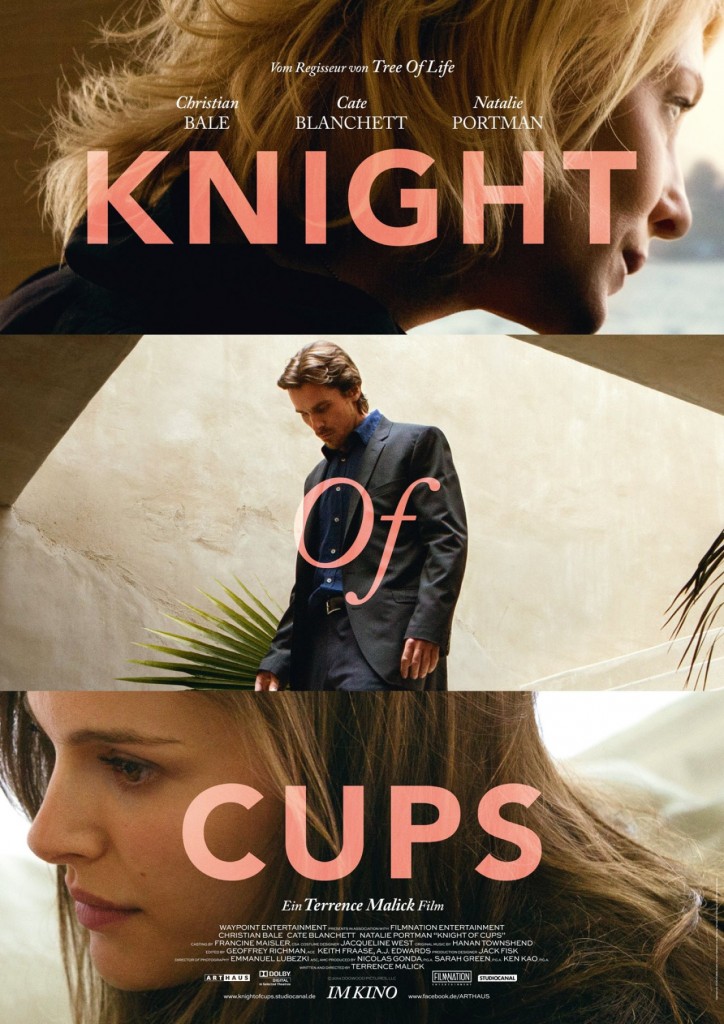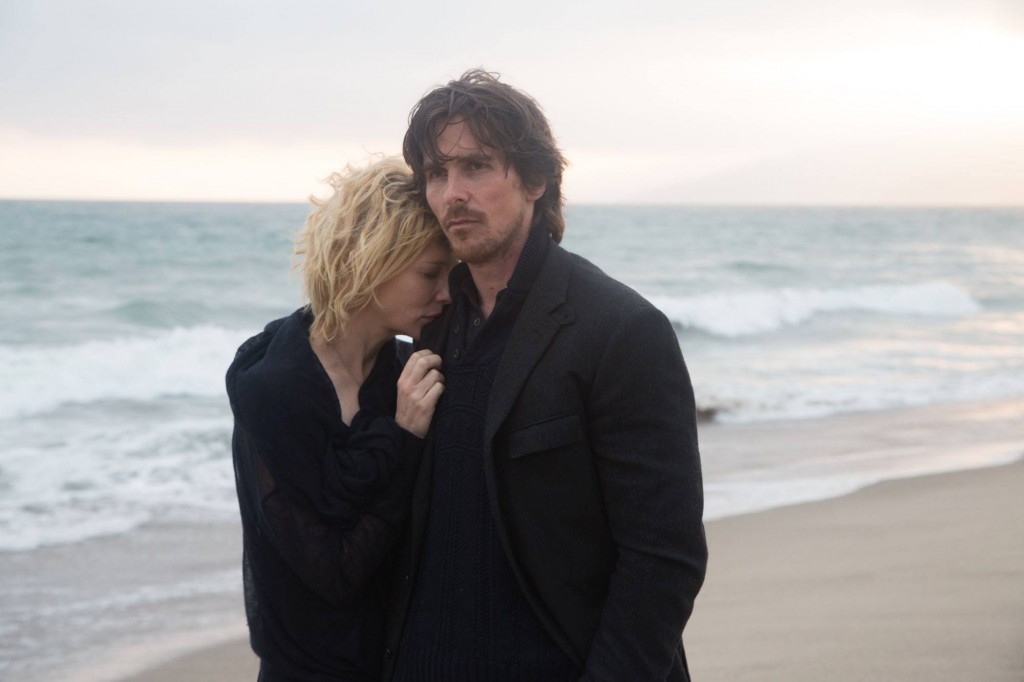By Max Levine
Knight of Cups is technically a movie. It’s just a movie in the loosest, loosest sense of the word, in that it has an allotted length of time and a star-studded cast, but otherwise, it’s a calculated test of patience that serves to play with form over content and reiterate the same goddamn mantra for two monotonous hours. But if you look past all of the Malick-y-ness, there’s a little trickle of substance hidden in there.
Let me elaborate here. There’s an evident cognitive shift in director Terrence Malick’s emphasis on stylization since The Thin Red Line. With the help of cinematographer Emmanuel Lubezki (an auteur in his own right), he wants the films he makes to have a sort of freedom, an improvisational feel, but also illustrate the angelic, ethereal and often religious grandeur of the cold reality we as humans often face. Arguably one of the best modern syntheses between director and cinematographer was seen in Tree of Life, a breathtaking, hyper-personal visual tapestry on the American middle class family. The dynamics between father and son, a reflection on death and mortality, all through a child’s eyes. A sort of astral experience that positioned the audience so serenely into another world.
Knight of Cups takes all of those overt Malick tropes and symbolism and just slams it into overdrive. There’s no way to do that thing where I give you the synopsis of the movie and pretend to break it down like it has any sort of linear, tangible meaning, because it doesn’t, and honestly it isn’t supposed to. Here’s what I know for sure: Knight of Cups is a story told in vignettes all based off Tarot Cards (except for the final act titled “Freedom”). Each story revolves around Rick (Christian Bale), a Hollywood screenwriter, and looks at the slow deterioration of his personal life through frenzied and often frenetic cuts.
The conceit of the entire film is uttered within the first twenty minutes: “You see the palm trees? They tell you that anything is possible.” Great line, right? So from there we see the sensory overload of Los Angeles that is creativity, drugs, debauchery, etc. And that’s it. There’s your movie. That and a multitude of scenes where Christian Bale stands on a beach, and Lubezki does a close-up on people’s hands (because Malick really needs to reinforce for the fiftieth time that he has a hand fetish) or something like that and some character closes their eyes, and has this heavenly, revelatory, angelic moment. Can’t have a 21st century Malick movie without one of those!
Usually, this is nothing to complain about, because he seamlessly weaves that visual poetry into the crux of a loose narrative. But for this, there’s nothing to tie it to. Even for Malick, this is an indigestible show of ego. Almost every three shots, the film alternates between DSLR and GoPro footage, in every other shot if there isn’t brief silence, there is just this ASMR-heavy whisper voiceover from either Christian Bale, Natalie Portman or Cate Blanchett’s characters, and the edits just jump from one moment to the next so rapidly it becomes a chore to absorb information. There’s no motivation for Bale’s character, or any character for that matter, only improvisation. And yeah, I get it’s this solemn voyeur character who has no ambition yadda, yadda, whatever, but Malick obviously just went to his actors in certain scenes and said, “Play around! And Lubezki, follow them with that camera,” or “Be really sad and stoic and walk really slowly! And Lubezki, follow them with that camera.” There is literally a line from an extra in that movie, where Christian Bale is standing outside of an office (maybe it’s his! Who knows? You’ll certainly never ever in a million years find out) where he just jokingly talks about going on a Call of Duty killstreak at home. If that is not an indication of someone making a movie where no one gives a shit, I honestly don’t know what is.
Knight of Cups tells you all of its desires, needs, wants, fetishes, all ad nauseum, and it is ANNOYING. IT IS ANNOYING TO WATCH. I don’t know how the fuck else to say it. Purposelessness with intent is one thing, but this is just absolutely purposeless and just a big fat glob of spit in the audience’s eye. It is aimless but has no palpable charisma, or anything that makes you want to pick it up and watch it again.
All that being said, there’s some great stuff in Knight of Cups‘ very final act, “Freedom.” The concept of freedom has always more or less been Malick’s intent, and it is, objectively, what drives his constant collaboration with Lubezki. There’s no denying that this film, like any of Lubezki’s work, is masterfully shot, and in these final moments, it really shows and it gives this directionless movie a little bit of guidance.
Knight of Cups condescends to the audience. It’s pretentious. It is literally the core of “Well, You Just Don’t Get It” filmmaking. It’s a project funded by a famous director too wrapped up in reiteration of meaning. If you try really hard, there’s stuff to like, but it’s completely shrouded by all of these nauseating factors. You can always keep an audience guessing and trying to go back and figure things out — that’s the mark of good cinema — but what’s the point of making the audience spend that much time working for something without intention?
Knight of Cups is now playing.
Max Levine is a video editor at ATB Productions in Baltimore. Sometimes performs stand-up depending on how nervous he gets. Occasionally writes for Baltimore City Paper.



